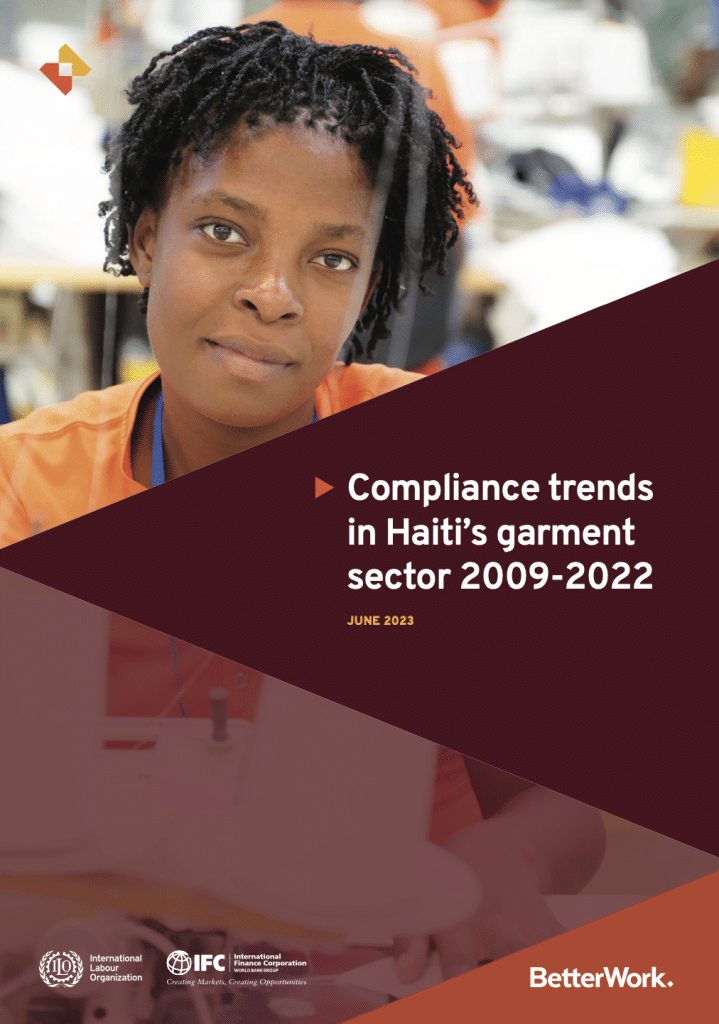This brief is based on findings from compliance trends analysis across a range of working conditions in firms enrolled in the Better Work Haiti programme.
Since Better Work Haiti’s operations began in 2009, garment manufacturers in the country and have faced several challenges to maintaining a stable and competitive industry. Most recently, these challenges have included the COVID-19 pandemic, deteriorating macroeconomic conditions, and severe political and governmental upheaval and disruption. Despite these difficult circumstances, the industry and its stakeholders have continued to progress toward improved working conditions in workplaces while maintaining a viable and key industry for the country.
Although the program’s data show that non-compliance persists in several key areas, broad improvements have been made in areas key to employees’ direct health, welfare, and wage structure. These areas of improvement are those most directly related to individual employees’ day-to-day working conditions. Compiling data over 13 years shows which areas of non-compliance have decreased, including in areas covering wage conditions, health services, and first aid and employment contracts.
These trends suggest that factories enrolled in the program have taken a worker-centric approach to workplace improvements. This approach focuses on retaining workers by meeting their immediate needs rather than a more long-term and systematic approach to improving the working environment’s broader conditions. A broad overview of compliance trends among a consistent set of factories enrolled in the program, which complements bi-annual compliance synthesis reports, shows some positive trends since 2009:
- There have been increased training opportunities for workers
- Workers have witnessed enhanced access to health services and first aid
- More stable employment contracts have been achieved
- Mothers have been increasingly supported in the workplace
Persistent challenges and areas for future focus
Along with improvement in some key areas of working conditions, several points of non-compliance persist within the improved areas, and some areas of non-compliance remain stubbornly high. This includes areas related to workers’ leave benefits, social security support, and occupational safety and health.
